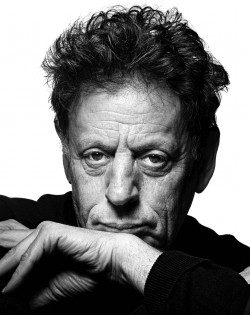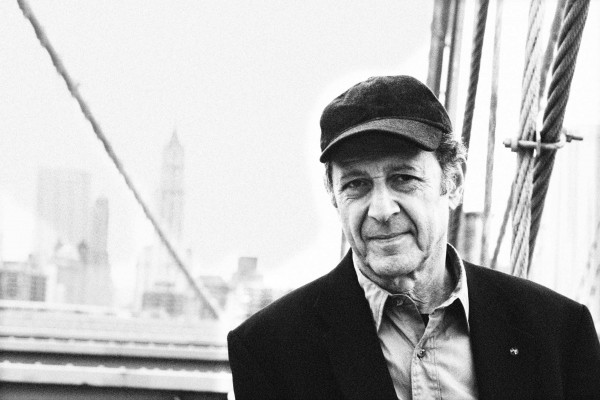 Lorna Irvine reviews two parts of this year's Minimal festival.
Lorna Irvine reviews two parts of this year's Minimal festival.
This year, MINIMAL turns five, and who better to head off the celebrations than legendary American avant-garde composers Philip Glass and Steve Reich
Friday, May 1st: Philip Glass Ensemble--Music In 12 Parts (1975)

Since Glass is here tonight playing in person, there is a palpable frisson in the auditorium. The total running time, excluding breaks, is four hours. He barely moves at his keyboards, occasionally pausing as the rhythms shift and blur. Swooping
female vocals are almost indistinguishable from flute, sax and clarinets. Initial gentle undulations become seasick sea shanties, drunk on their own power. Keyboards become fierce, stabbing, pounding, before settling into a jazz tempo, with fluttery vocals. The parts are mutable, ever restless for change, never wanting to be pinned down or categorised.
A glorious transfixing experience for those who stick around--or for those who merely wish to float in and out.
Sunday, May 3rd
Colin Currie Group-'Music For Pieces of Wood' (1973)
Reich is in the audience for these, Minimal's closing performances of some of his most influential pieces.
Five men, armed only with claves, (wooden blocks used in African and Cuban music) are silencing the whole auditorium. It's incredible. They play with elaborate patterns, settling eventually into an almost African groove. The tempo is actually performed in a decreasing length--6/4,4/4,3/4.
Colin Currie Group-'Quartet' (2013)
One of Reich's more recent pieces for two pianos and two percussion, this begins with an almost musical box sweetness, but it evolves into a hypnotic epic with subtle harmonic shifts.
Colin Currie Group with Synergy Vocals-'Music for 18 Musicians’ (1974-76)
What is so dazzling about the ensemble is their sheer versatility. They swap instruments throughout, making this a feat of physical dexterity, as well as on purely musical terms.
One of Reich's best loved, it exists in its own time and space. It hums and throbs like the motorway, visited by highway ghosts. Female vocals drift eerily in and out in waves, and saxophones ripple like angry motorists' horns. Pianos blink into life as though they were faulty streetlights.
Almost imperceptibly it changes, building in layers using xylophone and marimbas then falling away as if its very presence was an intrusion.
You emerge quite shellshocked, blinking in the early evening sunlight. Still an astonishing, transformative piece.
To view Philip Glass--Music in 12 Parts, click here. To view Steve Reich, Music for Eighteen Musicians, click here.
